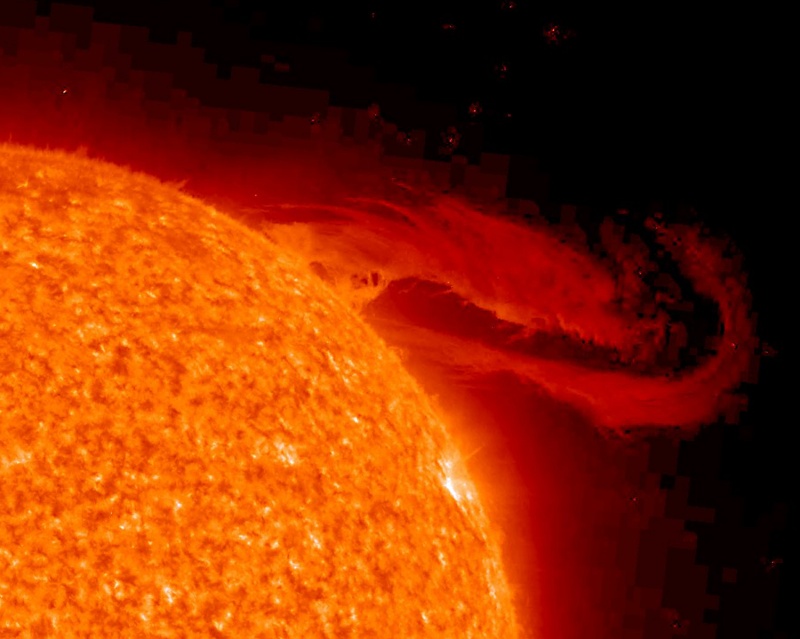The old idea of the "music of the spheres" seems to be coming back into fashion. Astronomers at the University of Sheffield have managed to record for the first time the "eerie musical harmonies" produced by the magnetic field in the outer atmosphere of the sun. They found that huge magnetic loops coiling away from the outer layer of the sun's atmosphere, known as coronal loops, vibrate like strings on a musical instrument.
Other astronomers have done the same for a much more distant and larger star, KIC 11026764, nicknamed Gemma, about 3,100 trillion miles away from the Earth. "Essentially stars resonate like a huge musical instrument," said Dr Bill Chaplin. "Stars make sounds naturally but we can't hear this as it is has to travel through space. Like a musical instrument, stars are not uniformly solid all the way to their core, so the sound gets trapped inside the outer layers and oscillates around inside. This makes the star vibrate causing it to expand and contract. We can detect this visually because the star gets brighter and dimmer and so we can reconstruct the sounds produced from these vibrations."
The scientists at the Large Hadron Collider (where high-energy collisions of subatomic particles result in temperatures of ten trillion degrees) have also turned their readings of the energies released by particle collisions into sound, and are planning to stage a concert of the resulting music.
All of this is very reminiscent of Pythagoras and the search for cosmic harmonies that started off the history of science in the first place. But silence is coming back into fashion too. A successful film (Into Great Silence) and TV series (The Big Silence) have transfixed viewers with the deep, meditative silence of prayer. A record featuring two minutes of complete silence is tipped to rise to the top of the music charts this weekend, for Remembrance Sunday. The director general of the Royal British Legion said "we felt the UK public would recognise the poignancy of silence and its clear association with remembrance." In his recent exhortation, Verbum Domini, the Pope emphasizes the important role of silence in the Liturgy. "The word, in fact, can only be spoken and heard in silence, outward and inward." Thus people must be "educated in the value of silence." "Rediscovering the centrality of God’s word in the life of the Church also means rediscovering a sense of recollection and inner repose.... Only in silence can the word of God find a home in us, as it did in Mary, woman of the word and, inseparably, woman of silence."
The silence of space is due to the fact that sound cannot travel through a vacuum. But sound is just a particular vibration, and the whole universe is made of vibrations of various sorts, so the music of creation is everywhere. Composers and musicians simply "tune in" to some deep harmonies in nature and filter out the dissonance. That seems to be the message of a sweet modern fairy-tale of a movie, August Rush, mentioned in the sidebar. But everything takes place against a background of silence, which - a bit like the "vacuum" of space - is anything but empty, but rather full of potential energy. By listening to silence we still the unnecessary turmoil of our minds and hearts, allowing the meaning of creation to sound forth.












